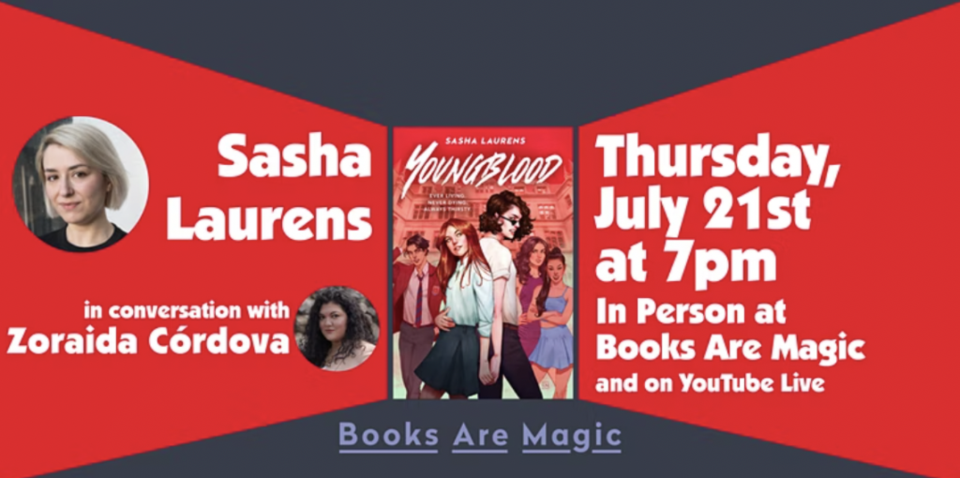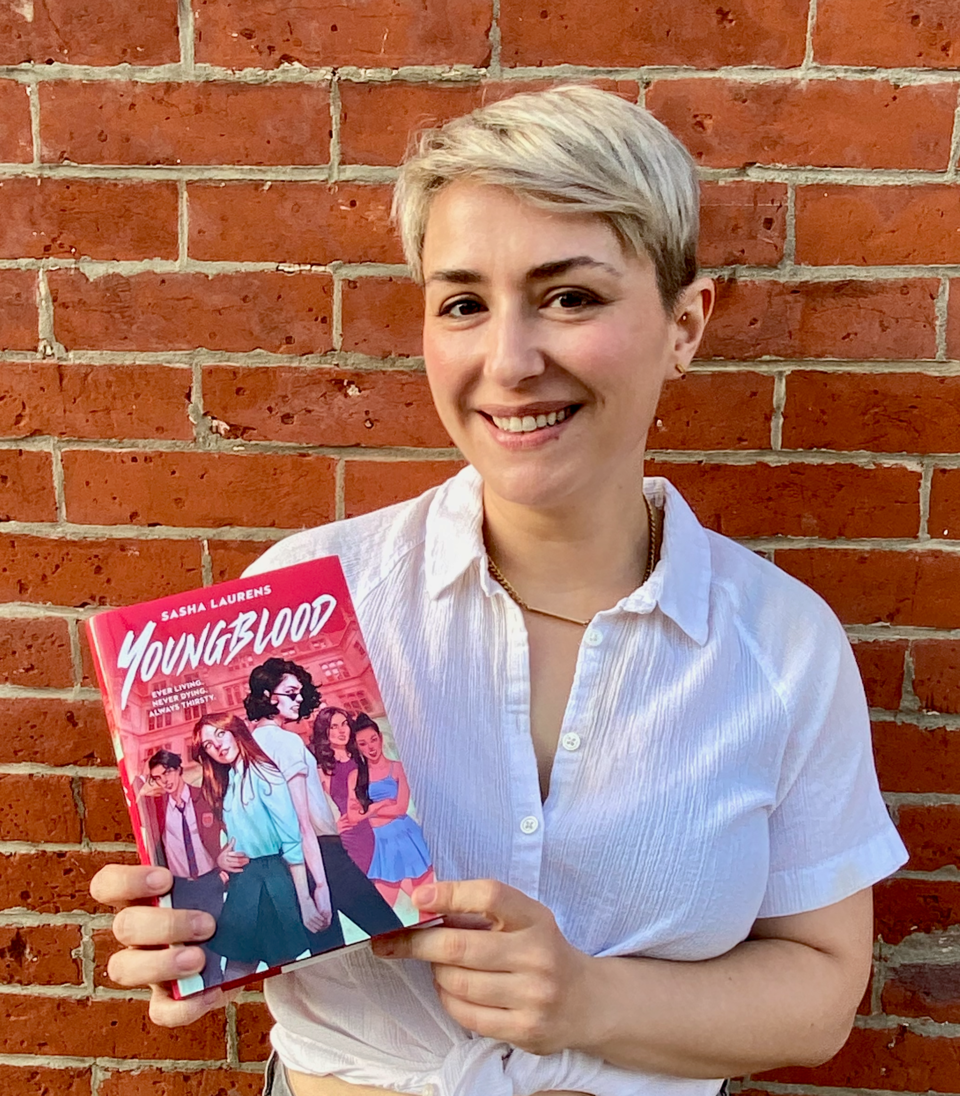Brooklyn author Sasha Laurens can condense the plot of a significant portion of modern vampire fiction into just a few sentences.
“Usually,” Laurens said, “it’s this incredibly old guy trapped in the body of a teenager, which is in and of itself sort of freaky, falling in love with an unsuspecting, kind of innocent teenage girl and he wants to eat her slash murder her. She’s so in love with him she kind of wants to let him.”
With her latest young adult novel, Youngblood, she hopes to turn that trope on its head and help take teen-oriented vampire fiction in a more socially-conscious, modern direction.
The book—a standalone that comes two years after her debut novel, A Wicked Magic—centers on Kat, a teenage vampire from Sacramento who is accepted to Harcote, an elite, vampires-only boarding school.
Not to include too many spoilers, but Kat is a Youngblood, someone born a vampire rather than turned, and spends the book discovering a conspiracy at the heart of the vampire community, while also discovering romance with her female roommate, Taylor.
And in doing that, Laurens’ main character can offer a chance for queer readers to see some of themselves in her, in a genre that, as Laurens described, has tended to be fairly heteronormative until recently.
For one, Laurens said it really is nice to write vampire fiction without the uncomfortable age gap dynamic, which can be found in ultra-popular vampire tales of the last few decades like Twilight and Buffy the Vampire Slayer.
“I personally always found the massive age gaps that we are willing to accept in relationships that involve vampires to be somewhat disturbing,” Laurens said. “It kind of reminds me of high school when I would have friends who are dating 35 year olds, and you would say, ‘Is that really appropriate? You’re 17.’ And they would say ‘No no, I know he’s 35 but he acts like he’s 17.’
"And well … that’s not good. So I feel like we kind of accept a similar thing for vampire romances, and that’s gross.”
But even beyond that, Laurens said vampire fiction seems like a pretty natural genre to add some additional queerness.
“Vampires are so inherently campy and kitschy and sort of absurd,” Laurens said, “that I think there is a really strong element of reference to gay camp almost with vampires. Like, they’re so melodramatic, they’re always wearing ridiculous costumes, they sparkle in the sunlight. These things are all gay.”
Laurens said she’s asked often about why it’s important for queer characters to be represented in fiction.
“There are queer readers who want to read stories about themselves and deserve to read stories about themselves,” she said. “These people literally exist, why not put them in stories?”
Youngblood tackles other real-world issues, too, she said—Laurens draws on her own experience of attending an elite boarding high school in Northern California in crafting Harcote, with special attention given to what she described as a false sense of superiority that can manifest itself among students at schools like these, whether they’re real or fictional.
“We definitely had the sense of, like, ‘Everybody here is maybe the best at something in the country. Everybody here could be nationally competitive in something,’” Laurens said, describing the attitudes she saw in high school.
“And like, that’s probably false. So that’s something I tried to explore in the setting of Harcote in Youngblood. It really is just an exclusive boarding school. They literally only accept vampires who can afford to pay for it and yet they all seem to think they are there on merit and they really don’t have any insight when the book begins into why they’re there and there might be some kind of other system at play that’s allowing them to be part of that institution.”

With that eye toward reflecting elements of real-world problems, Laurens explores the realities of being queer in a sometimes-unfriendly world through the story of Taylor.
“Taylor’s the only out student at this school and she’s been there for two years already and she has this sort of hardened exterior where sort of to protect herself to protect her ability to be herself publicly and carry her identity in a place that isn’t really that friendly to it,” Laurens said.
“She becomes hardened to everything, really defensive, she has this very cutting sarcastic sense of humor but she’s also really afraid to care about anything because she doesn’t want to be disappointed or embarrassed for having put herself out there.”
Laurens said by exploring these themes, Youngblood is a narrative that she finds much more compelling than the standard vampire stories that have attained the most popularity in recent times.
“If I wanted to write a book about straight vampires falling in love at a boarding school, it would be tremendously boring,” she said. “Those are just stories that have been told so many times. I think there are a lot of narrative possibilities that open up when you admit queer people exist.”
Youngblood will be out July 19 and is available for preorder here.
Also, on July 21, Laurens will hold an in-person book signing of Youngblood, in conversation with author Zoraida Córdova, at Books Are Magic in Brooklyn. For tickets, go here.



.png;w=120;h=114;mode=crop)
